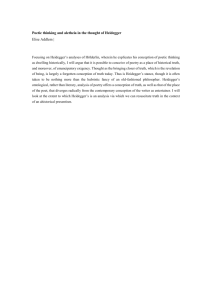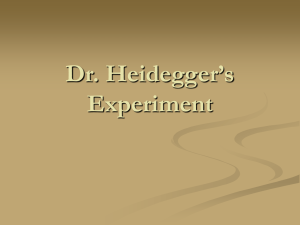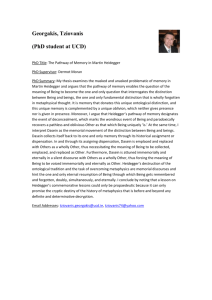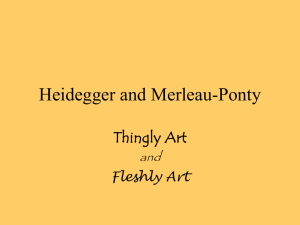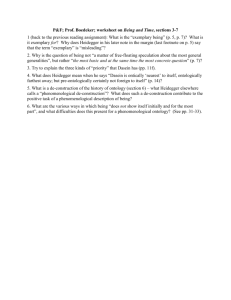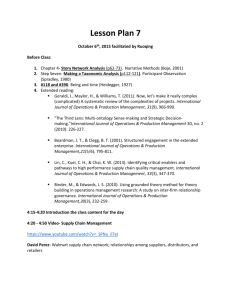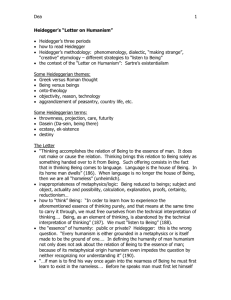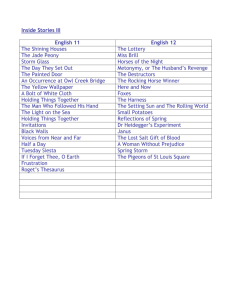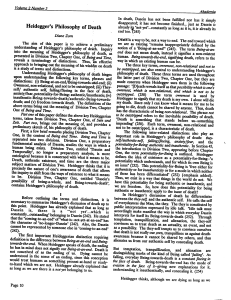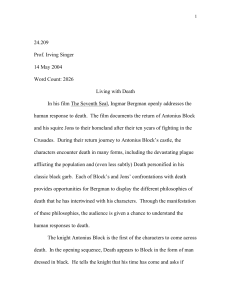PowerPoint Presentation - Theories of Human Nature
advertisement
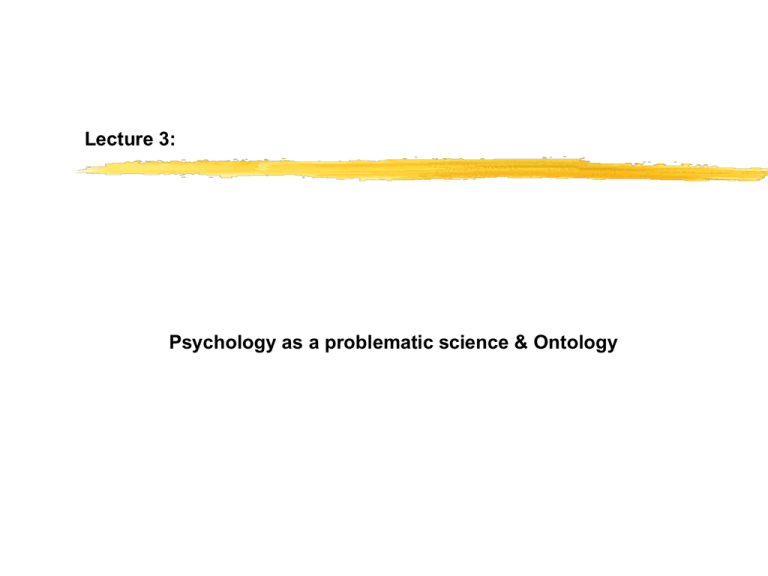
Lecture 3: Psychology as a problematic science & Ontology Crisis of psychology Permanency of the crisis Domains of the crisis Description of the crisis: Accumulation of data without theoretical integration or clarification Fragmentation and missing unity of psychology Irrelevance of psychological research for practice Ideological influences on psychological theory Conceptualization of psychology as exclusively natural science Substance of the crisis Inadequate conceptualization of the subject matter of psychology: Importance of the subject matter Historical aspects Subject matter and models Methodologism of psychology: Problem: Experiment Problem: Nomothetic science Problem: Pseudo-empiricism Problem: Conceptual and investigative arbitrariness Ontology and ontological problems The study of being as such (the basic characteristics of all reality) The nature of existence The nature of the relationship between mind and body The nature of psychological concepts Human nature Problem 1: What is the nature of human existence? Martin Heidegger's (1889-1976) Being and Time (1927). Examined the totality of human existence. Dasein: "to be" (sein) "there" (da). Person and the world are inseparable -> Being-in-the-world: Hyphens are used to emphasize the interrelatedness of the person and the world. Heidegger Authenticity and inauthenticity A prerequisite for living an authentic life was coming to grips with the fact that "I must someday die." Realization Person can exercise freedom to create a meaningful existence. Refusal: Person inhibits an understanding of his or her possibilities inauthentic life. Heidegger Authentic life: Lived with a sense of excitement. Exploring life's possibilities. Becoming all that one can become. Inauthentic life: One pretends. Living a conventional life emphasizing present activities without concern for the future. Giving up freedom and let others make the choices of one’s life. Heidegger Guilt If we do not exercise our personal freedomGuilt Authentic life Minimize guilt. Heidegger Acceptance of the fact that at some point in the future we will be nothing anxiety (acceptance takes courage). Making personal choices anxiety. Authentic people are always experimenting anxiety. Exercising one's freedom in life anxiety. Anxiety: A necessary part of living an authentic life. Heidegger The free individual is responsible for the consequences of choices. One cannot blame God, parents, circumstances, etc. Freedom and responsibility go hand-in-hand. Heidegger Humans choose, evaluate, accept, reject, and expand. To exist is to become different. Humans choose the nature of their own existence. Limits of personal freedom: We are thrown into the Dasein by circumstances beyond our control. Thrownness determines the conditions under which we exercise our freedom. Problem 2: The relationship between mind and body I. Dualism: Two substances II. Monism: One substance Dualism Interactionism: Descartes: res extensa - res cogitans. Mutual influence of mind and body. Mental -> physical; physical -> mental. Parallelism: Leibniz: Mental and physical, mind and body: parallel mode. Emergentism: Mental processes are produced by physical (brain) processes. Yet, mental processes, though produced by brain processes, are qualitatively different from the physical system from which they emerge. Monism Materialism: Everything is physical or material. Our mind is a result of the physical. (Lamettrie) Spiritualism: Everything is spiritual, mental or immaterial (Berkeley). Identity-theory (double aspect monism): Mind and body are the same. We use different languages to describe these processes. (Spinoza, Schelling) Epiphenomenalism: Physical events are causal with respect to mental events. Mental events have no independent existence. (Huxley) Problem 3: Concepts Are psychological concepts of a natural or of a socio-historical kind? Problem 4: The nature of human nature Theories of human nature
